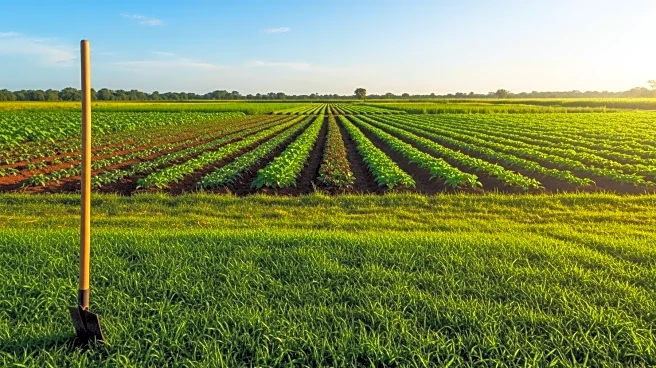What is the story about?
What's Happening?
Researchers are revisiting ancient Mayan farming techniques as potential solutions to modern agricultural challenges such as soil degradation, biodiversity loss, and climate change. The Maya civilization, which thrived in Mesoamerica, developed complex and sustainable farming systems that maintained ecological balance while feeding millions. Key practices included integrated landscape management, multi-cropping, and the Milpa system, which involved intercropping maize, beans, and squash. These methods ensured soil fertility and ecosystem health, providing a model for sustainable agriculture today.
Why It's Important?
The rediscovery of Mayan agricultural practices offers valuable insights for addressing current global agricultural issues. These techniques emphasize ecological balance and soil regeneration, which are crucial for sustainable farming. By adopting these methods, modern agriculture can reduce reliance on chemical inputs, enhance biodiversity, and improve resilience against climate extremes. Smallholder farmers and regions facing land degradation can particularly benefit from these practices, which are adaptable across tropical and subtropical zones.
What's Next?
Contemporary adaptations of Mayan farming techniques are being integrated with modern tools to address sustainability challenges. In regions like Guatemala and southern Mexico, Mayan agroforestry models are being used for carbon sequestration and biodiversity conservation. NGOs and research organizations are promoting Milpa-inspired community farming as a strategy for climate-resilient livelihoods. These efforts could lead to broader adoption of Mayan-inspired systems in global agriculture, potentially transforming farming practices to be more sustainable and resilient.
Beyond the Headlines
Mayan farming represents an indigenous ecological philosophy that views agriculture as a spiritual and communal relationship with nature. This perspective contrasts with modern regenerative agriculture, which focuses on measurable environmental outcomes. By rediscovering Mayan farming systems, the global agricultural community can learn to integrate ecological diversity with cultural continuity, offering a blueprint for resilience and sustainability.















